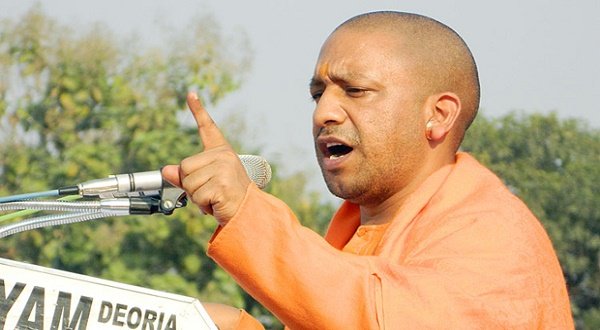
With both the Hindutva extremists and Al Qaeda gunning for Indian Muslims, looks like it is open season on the country’s largest minority
AIJAZ ZAKA SYED
[dropcap]S[/dropcap]tudy the past, advised Cicero, to know the future. But those who forever live in the past end up eclipsing their present and the future. No wonder the frequent word of advice from our elders is: Jo huva usey bhool jao. Don’t obsess over the past. Let it go. Look to the future. A sensible advice certainly–especially for those whose past is like a festering wound.
Who’s got the stomach, time or energy to dig up the old ghosts and rake up one’s wounds? But even if you are determined to get over the past and get on with your life, there are people out there whose sole life mission is to see you do not, in your luxurious existence, ever lose sight of the Original Sin. No, sir, as long as you live, like the generations before you, you are condemned to carry the cross of historic guilt–of dismembering the motherland.
It may have been some 67 years since the Partition and those ostensibly guilty of this primordial crime may have long gone. However, anything goes wrong anywhere in India or Pakistan, the ghosts of Partition must be invoked and brought back from the dead all over again.
So the ceaseless anti-government protests across the border by Imran Khan and his unlikely bedfellow Tahirul Qadri move R Jagannathan, Editor of Firstpost, India’s leading online newspaper, so much that he must thank Lord Ganesha that the Partition happened and that he does not have to suffer the barbarians bent on throwing out an elected government.
‘What Pakistan’s crisis tells all Indians: Partition was an excellent idea!’ If you find the title of the piece evocative and enticing enough, what Jagannathan argues at the outset should leave you panting and wanting for more.
“If one were to look at what’s happening across our western borders – where an elected government is being sought to be ousted by street protests, possibly tacitly backed by the army — any sane Indian should be saying to himself: thank God for Partition,” writes Jagannathan before delivering the knockout punch: “The fact that we had some past civilization links to the region now called Pakistan should not blind us to the reality that this link is dead. Islamic Pakistan and democratic India can never be friends — till Pakistan ceases to be Islamic!”
You do not find such ‘fair and balanced’ candor and incisive insight even on Fox News and from the likes of US televangelist Ann Coulter and Bill O’Reilly these days.
If you find this open, Islamophobic bigotry shocking, well, it is meant to be. Jagannathan’s kind of ‘journalism’ is not an exception anymore; it is fast becoming the norm in a country once known for its fierce media freedom and secular, liberal idealism.
Such venom against all things Islamic in the name of confronting and critiquing the troublesome Western neighbor is all too common these days.
Firstpost has long been a trenchant critic of the previous Congress government and Dr Manmohan Singh and naturally a passionate supporter of Modi. Which makes sense considering it belongs, like much of India’s corporate media today, to Reliance group of Mukesh Ambani, a close friend of the prime minister since his good ol’ Gujarat days.
In another gem this week, Jagannathan was on a proselytizing mission exhorting Hindus to start mass conversions from other faiths to deal with the “Muslim problem” and their fast growing mythical numbers.
Adding his voice to the call to arms by BJP’s Yogi Adityanath against the so-called love jihad, imploring Hindus to convert one hundred Muslims for every Hindu leaving the faith, Jagannathan admonishes Hindu society for its social and casteist aversion to opening its doors to outsiders.
In a piece tantalizingly titled, The Real Threat to Hinduism is Patriarchy, not ‘Love’ or ‘Sex Jihad’, Jagannathan writes: “If Hindus believe that conversions are a threat to them, they have no option but to be more like the proselytizing religions of the world (read Islam) and start setting up institutional systems for expanding their reach. This will, of course, change the nature of Hinduism – but a religion that does not change will atrophy.”
Now who would have any issues with Hindu groups going on a proselytizing mission? India is a free country and everyone is free to believe in and practice the faith of their choice and even invite others to their beliefs.
The trouble is, there is a dichotomy, if not duplicity, at work here. While Hindutva votaries like VHP are busy aggressively proselytizing and “bringing back Muslims and Christians to their original faith,” as they put it, they have been fighting for a ban on conversions by Christian and Muslim groups since an entire Dalit village down south, Meenakshipuram, in 1981 converted to Islam.
Besides, as Dalit intellectuals like Kancha Ilaiah argue, when upper caste Hindus still cannot share their social space, food and even God with brethren from a lower birth after 67 of Independence and socialist, secular democracy, how do they expect to welcome new faithful to the fold? But then that is, I guess, an internal affair of the community and an issue best tackled by its own leaders and intellectuals.
What should worry us all though is the increasing radicalization and communalization of the intellectual space and intolerance of anything remotely resembling dissent or difference of opinion. As Prof Zoya Hasan lamented in the Hindu this week, it’s not just that Indian politics suddenly has no use for the country’s minorities, there’s no room for minority opinion either.
On the other hand, there is a calibrated and sustained campaign to wreck communal peace in Uttar Pradesh, India’s most populous and most sensitive state, and elsewhere with the rising crescendo of Goebbelsian propaganda targeting Muslims. Madrassas are accused of sending Muslim boys to prey on Hindu girls, in an elaborate conspiracy by mullahs to change the demographics of India.

People like Yogi Adityanath, a senior BJP MP and its most rabid face today, have been on the rampage, spewing venom against an already terrified minority. He urges his followers to impregnate hundred Muslim women for every Hindu girl falling for a Muslim.
BJP President Amit Shah has promised his cadres that if the current communal polarization is maintained, the party could soon return to power in UP. No wonder in the past few months, more than 600 ‘communal incidents’ have been reported from UP alone. And it’s not just UP that sits on powder keg, all set to blow up. A clever national pattern is emerging with numerous cases of “forced conversions of Hindu girls by Muslim boyfriends” being reported from various parts of the country in sync with the ratcheting up of hysterics by Hindutva groups and their sophisticated collaborators in media.
Does it all have anything to do with the change of guard in New Delhi? There certainly seems no other explanation. As they say, Jaisa Raja Waisi Praja! (As the king, so are the subjects) It’s as though Modi’s ascent has emboldened, if not given the go-ahead to the Parivar to go berserk.
This even as the Prime Minister has been all sweetness and light, vowing ‘sab ka saath, sab ka vikaas’ (participation and progress of all), projecting himself as a world statesman, in the mold of Nehru and Kennedy.
His Independence Day speech warning the nation against the ‘communal poison’ and suggesting a moratorium on violence would have made Gandhi proud. What explains his deafening silence over the shenanigans of his own followers though? If he really means what he says, why doesn’t he begin by cracking the whip against the nuts like Adityanath?
Whatever the explanation, with all this talk of Indian Muslims joining the distant ISIS and Al-Qaeda weighing in on with its own marketing pitch, looks like it is open season on Indian Muslim.
Security and intelligence strategists cannot hide their glee as they conjure up frightening scenarios of global jihad against India. Things are heating up for India’s largest minority. It’s time for Indian Muslims to be afraid — very afraid.
_________________________________
All opinions and views expressed in columns and blogs are those of individual writers and do not necessarily reflect the editorial policy of Caravan


